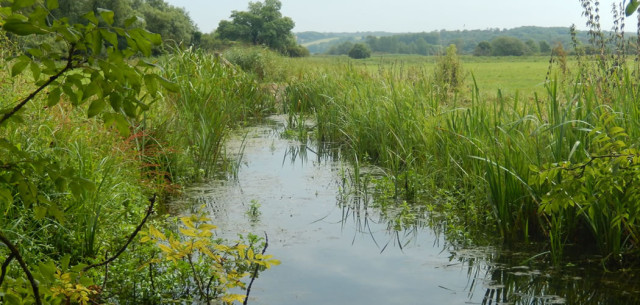
November 12th, 2021
Surveying The Arun
Part of our Upper Arun River Revival project is to survey the River Arun from its source, north of Horsham, ~50km downstream to Pallingham which is the tidal extent of the river. The surveys involve walking 500m sections of river and recording where natural habitat is present for freshwater biota (e.g. fish and invertebrates). We also record the presence of non-native species and any factors that may be negatively impacting the river. This information gives us a valuable insight into how the river is functioning for the benefit of wildlife and people and helps us to identify where we can make improvements.
Our surveys started along Hyde Ghyll which is one of several headstreams arising in the Wealden clays around St. Leonards Forest that provide the Arun’s base flow. Here the water flows through undisturbed woodland before feeding into Hawkins pond where the Ghyll was dammed nearly 500 years ago to provide a source of water that powered a hammer mill. The hammers were used for processing smelted iron that was harvested from the iron ore found across the Weald.
Whilst surveying the Ghyll, I took the opportunity to sit and watch the rich invertebrate life that was whizzing around in the water beside me. I first noticed the freshwater shrimps and soon became aware that the water was teaming with cased caddis fly larvae, all clambering around on the channel bed. I was fascinated to see so many and took the opportunity to take a video of one climbing up and feeding off algae attached to a twig that had become lodged in the channel substrate. Although I am no expert, freshwater invertebrates, especially caddis flies, have always fascinated me. Adult caddisflies live a terrestrial life for about 1 month, but before that they undergo 3 life cycles. They start out as eggs which are laid by adult females on vegetation just above the waters surface. The larvae then hatch and fall into the water where they immediately start to build protective cases. These cases can be made from silken thread, or twigs, gravels and even plastic. The type of case can vary between species, by season and by habitat with species in flowing water generally building cases comprising heavier materials to increase their overall weight.
Following the larvae stage, the larvae will attach itself to a stationary object such as a stone and creates a cocoon of silk around the body where it pupates before floating to the surface to become an adult.
Caddis flies are an important group of insects. During their freshwater stages of life, they play a role of both consumers, feeding off detritus, algae and/or other insects and are also prey for a range of fish species. During their adult stage they are also an important source of food for brown trout that will leap from the water to take flying adults and are also consumed by birds and bats. Some caddisfly larvae are also sensitive to pollution and they are often used as indicators of the quality of rivers.
It is hard to imagine that the small Ghyll with crystal clear water eventually becomes the River Arun which, by comparison flows within a wide, over-deepened channel that has been modified by weirs, road bridges and culverts in the past. That is not to say, however, that the River Arun does not have valuable habitat for wildlife. Even through Horsham the river is mainly wooded along its banks. This helps to protect the riverbanks from erosion, reduces the water temperature which benefits many fish species and the trees also provide a source of woody debris in the channel. This helps to create variable bed levels and sediment bars which benefit a range of species, particularly invertebrates. Caddisfly larvae for instance benefit submerged stones which can be exposed if sediment is trapped by woody debris and from woody debris itself as both features provide the best substrate for the growth of algae and periphyton (micro-organisms) from which most larvae will feed. Fish also benefit from woody debris as it plays a role in trapping sediment which helps to expose gravels downstream that are used by fish to lay their eggs. During a survey of the river downstream of Rudgwick I was lucky enough to witness fish spawning on gravels exposed due to a large debris dam located upstream. Both species will lay ~10,000 eggs which adhere to the gravels

Hyde Ghyll

River Arun downstream of Horsham
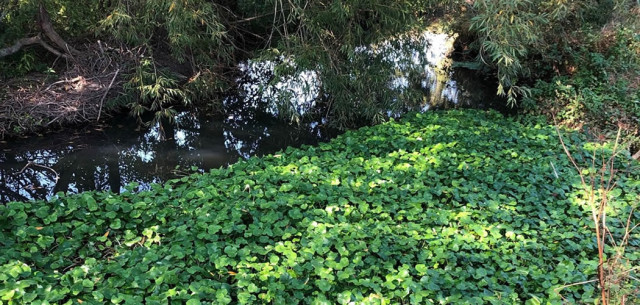
October 27th, 2020
Wild Swimming With Penny Wort
In mid-September, I donned my drysuit and floated on my first wild swim of the year in the upper River Arun near Horsham. My company was Penny Wort who hails from North America, with...

July 23rd, 2020
One Flush And We Forget!
Country smells
Sewage and water are inextricably linked. If the one is not handled properly it can pollute the other which is why the Arun & Rother Trust is so interested in waste as well as...
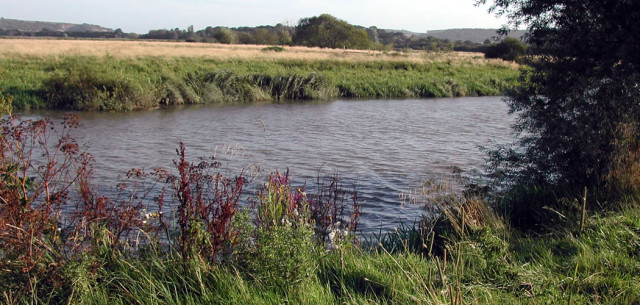
June 5th, 2020
Looking Forward To Getting Back To Our Rivers
June 16th is probably the most important date in a river anglers’ diary, it is the day when we can fish our rivers again after a three month break. This break is called the close season and was...
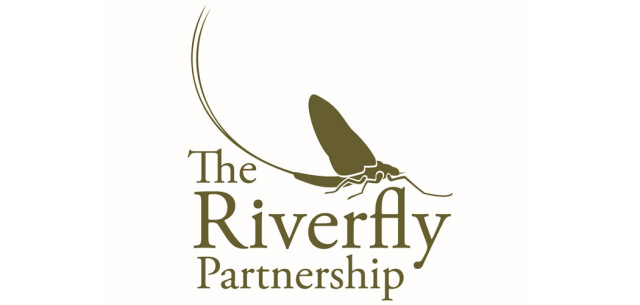
March 10th, 2020
Riverfly Partnership News
ARRT invites volunteers to undertake river monitoring to get to know their rivers better and aid future improvements and enjoyment. The Trust is investing in citizen science through the River Fly...

January 20th, 2020
Farmers Trial Smartphone App for Land Management
I thought New Year would be a great time to take stock of the progress made by the Rother Valley Farmers Group (RVFG) since its launch in 2018. I’ve certainly found it two incredibly rewarding...
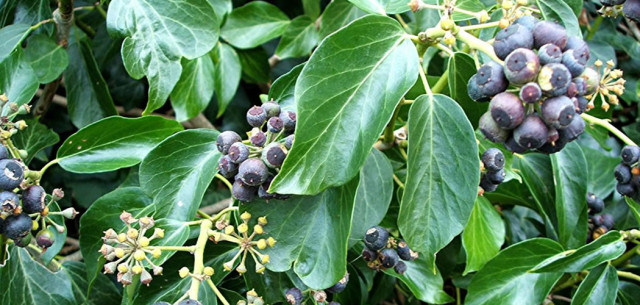
January 20th, 2020
The Ivy League: Promoting Biodiversity
[caption id="attachment_1481" align="alignleft" width="240"] Common Ivy[/caption]
On a cold January day Richard Chandler and I were at Moor Farm to plan a farmland bird training event for...
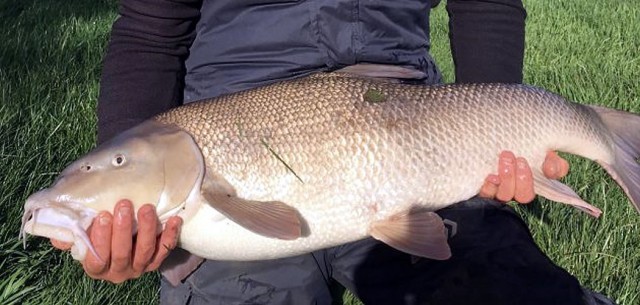
January 14th, 2020
Sussex Angler Breaks British Record
A ‘monster’ Barbel has been landed in Petworth and Bognor Angling Club’s waters by member Colin Smithson, breaking the 13 year old British record.
Colin thought he had hooked a big Mirror Carp says...
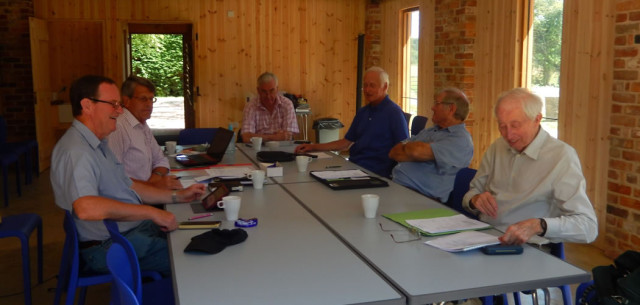
December 4th, 2019
Joining The Dots!
A room full of landowners, farmers, anglers and conservationists, retired Environment Agency and water company managers – and a snail expert. That’s a typical ARRT management meeting. You’d think...

